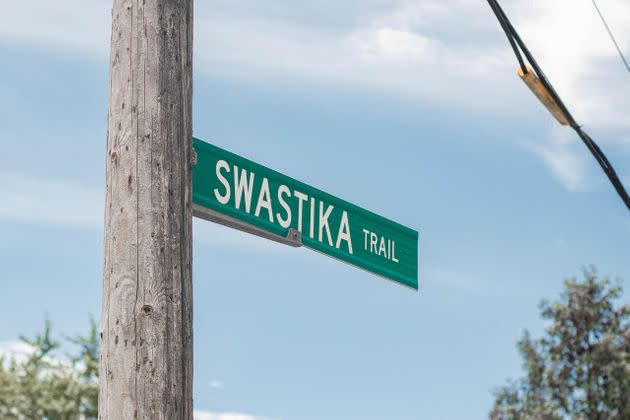I Live On A Road Called 'Swastika Trail'. I've Been Trying To Change Its Name For Years.

I am tired of the dirty looks I receive when I show the pharmacist my ID. I hate hearing the awkward jokes when I give the bank teller my address. Some companies refuse to deliver packages to my house. When I tell strangers where I live, I am asked if I am a white supremacist.
I am not a racist, I swear. But how do you explain an address on Swastika Trail, as I have been forced to for nearly two decades?
I know the swastika is an ancient religious symbol still in use in some places and religions. Nevertheless, the racist and mass-murdering Nazi regime with which the swastika is now inextricably tied makes it inappropriate, insensitive and downright disgraceful to use for a street name in post-Second World War Canada.
In recent years, the swastika has re-emerged as a symbol of overt racism. It shows up at hate-fuelled marches and demonstrations. US President Donald Trump’s presidency and administration have received blowback over courting neo-Nazis and incorporating their imagery into campaign paraphernalia.
Puslinch, Ont. — a quiet, tree-filled town south of Guelph — has been my home for 18 years. The private street I live on was named after the adjacent Swastika Beach in the early 1920s. By 1937, due to growing concern over events in Europe, the beach was renamed to Barber’s Beach in an effort to distance the tourist destination from Germany’s nefarious Nazi Party.
However, the street name remained unchanged. Cue decade after decade of continuous shame to our community.
Some residents see the street name as an innocent part of the local history, and nothing more. It’s an insult to all Canadian Armed Forces members who fought against the hatred and genocide of Nazi Germany. I should know — my father was one of them. To our family, the name is a distressing reminder of what he endured. It hits even closer to home for my neighbour, who sees it as a daily reminder of his father’s death during the Holocaust.
People ask me all the time, “If the name...

